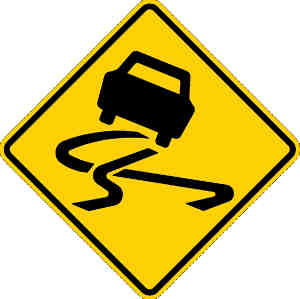New Figures Reveal Decrease in Road Fatalities

The Department for Transport (DfT) has released its annual road casualty report, revealing some positive news for UK road safety: road fatalities have decreased over the past year, continuing a downward trend that dates back to 1979. However, the report also shows that since 2010, this decline has slowed significantly.
In 2023, road casualties showed an encouraging drop compared to 2022, marking a return to pre-pandemic levels. According to the report, fatalities totalled 1,624, a 5% reduction from the previous year. There were also nearly 30,000 incidents classified as “killed or seriously injured and a total of 132,977 casualties of all severities, a 2% decrease from 2022.
Road collision rates per billion miles travelled also declined, with over 333 billion vehicle miles logged in 2023 and a drop of 7% in fatalities per billion miles compared to 2022.
What Should Motorists Do In The Event of a Road Accident?
If you’re involved in a car accident, no matter who is at fault, you must take steps to stay safe and meet legal requirements.
According to the Road Traffic Act 1988, drivers must stop at the scene of any accident involving damage to a person, property, or animal, regardless of fault. Failing to stop can lead to a fine or even a six-month prison sentence. If the car is still drivable, find a safe area, turn off the engine, activate hazard lights and ensure all passengers leave the vehicle.
For accidents with injuries, contact emergency services immediately. On a motorway, move to the hard shoulder on a motorway and stay behind the crash barrier. Call from an SOS phone, this helps them pinpoint your location.
Drivers must legally provide their name, address, vehicle owner information (if different), and vehicle registration number to others involved in the accident. If someone is injured, you must also present your insurance certificate. Information such as the date, time, weather, and location of the accident can help. If it’s safe, take photos and get witness statements if possible.
If the other vehicle is unattended, leave your contact information on its windscreen. Also, call the police if the road is blocked, or if you suspect a “crash-for-cash” scam, a scheme where fraudsters intentionally cause accidents to claim insurance money. Report any suspicion of drink or drug involvement to authorities as well. A dashcam can help protect against fraudulent claims or disputes about fault. Investing in one can provide clear evidence if an accident occurs, helping you avoid potential legal and financial troubles.
Notify your insurance broker about the accident promptly, even if you don’t plan to file a claim. Failing to report the incident within your policy’s timeline could invalidate your insurance policy.
If you have comprehensive cover, you can typically claim panel beater and mechanical repairs through your own insurer, though this may impact your no-claims bonus unless the other driver is deemed at fault. Uninsured costs, like rental cars or personal injuries, can usually be claimed from the at fault party’s insurance.

If you only have third-party cover, your policy won’t cover damages to your own car, so consult your insurer for guidance on claiming against the other driver’s policy.
If an accident is deemed your fault, such as in rear-end collisions, which are typically the responsibility of the driver behind, your insurer will cover costs up to your policy limits, though this could impact your premium.
If your car is deemed beyond economical repair, it will likely be written off.
Your insurer will offer a payout based on the car’s market value at the time of the accident, minus your excess.
Before repairing any damage, get approval from your insurance provider to ensure costs are covered. You’ll typically be directed to an approved repairer or asked to provide estimates.
Always do your own research, but by following these steps, you’ll be better prepared to handle the aftermath of an accident safely and legally.






